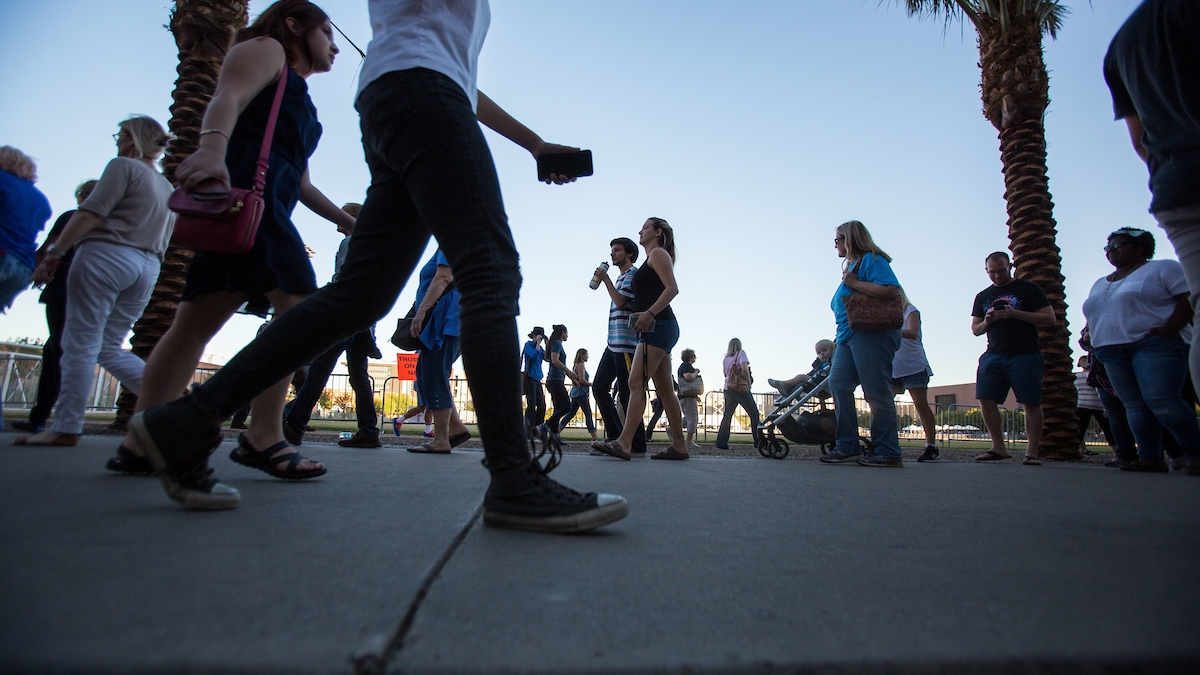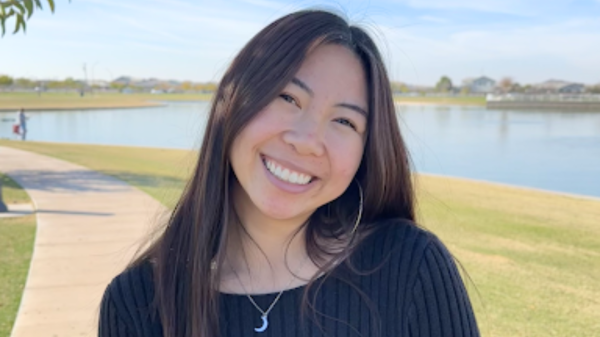Ranked No. 10 for 'undergraduate teaching,' ASU offers new ways to learn
Adaptive learning, research opportunities enhance education experience

In the spring semester, a group of undergraduate students at Arizona State University worked on a way to convert internet text to braille for visually impaired children in Africa.
Another group researched flu virus mutations on the Tempe campus.
One student studied the effects of gentrification in a Phoenix neighborhood.
And an engineering team invented a new kind of hospital bed that reduces the risk of pressure ulcers for patients.
Undergraduate students at ASU have a vast array of opportunities to work on real-world research and project-based learning that not only helps the community but also prepares them for careers.
A commitment to providing undergraduate research opportunities is just one example of the ASU faculty’s focus on undergraduate education. This year, that commitment is reflected in ASU’s ranking as 10th in the nation for “undergraduate teaching” for 2020 by U.S. News and World Report.
The “undergraduate teaching” category is based on surveys of college presidents, provosts and admissions deans by the magazine, whose rankings were released Monday. The top 10 on the list are: Princeton University, Elon University, Brown University, Georgia State University, College of William and Mary, Dartmouth College, Boston College, Miami University - Oxford, Rice University and ASU. Among public schools, ASU ranked fourth.
U.S. News and World Report has also named ASU as the most innovative university all five years the category has existed, as well as No. 9 in the nation for “first-year experience.’ The widely publicized annual rankings compare more than 1,500 institutions on a variety of metrics.
ASU has worked to enhance the undergraduate learning experience in many ways, including making study abroad easier and incorporating service learning into degree programs. While by no means a comprehensive list, here are some ways that ASU excels at undergraduate teaching:
Undergraduate research
ASU uses the “Handshake” platform to connect undergraduates to research opportunities, some of which are offered for credit and some of which are paid. Students can develop relationships with professors as they collaborate on projects in nearly every school at the university.
Project-based learning
A hands-on, collaborative project makes course content relevant, and ASU has several opportunities for students to team up and learn this way. ProModcombines two or three courses into one project, such as creating evidence-based treatment for low back pain or “Make a Difference,” in which students learn about social issues and come up with a solution. Engineering Projects in Community Service, or EPICS, is a program in the Ira A. Fulton Schools of Engineering in which students work with industry mentors on a real-world problem to help a school or nonprofit organization.
Adaptive learning and BioSpine
Academic performance is key to persistence. Students who earn a GPA of 2.5 or lower in their first year are at increased risk of not returning. So ASU has embraced adaptive learning in “gateway” courses such as algebra, psychology and history. In this personalized model of education, students learn small chunks of content at a time and are then tested for mastery before moving onto the next lesson. If a student gets a problem wrong, the adaptive learning software can assess what concept was missed and seamlessly take the student back to the part of the lesson that needs reinforcement.
In addition, students attend class to do hands-on work solving problems together. ASU has seen increased mastery of course content by students who use adaptive learning.
This semester, ASU introduced the world’s first adaptive-learning biology degree, in a platform called BioSpine, which personalizes the entire four years of learning. Creation of the new degree meant that faculty had to collaborate on a unified curriculum — a radical concept, but one that greatly benefits students.
Center for Education Through eXploration
Imagine a university-level course in which playing a game teaches you physics, chemistry and math. The Center for Education Through eXploration uses digital learning products and platforms to teach science through exploration of the unknown. Among the projects are a game-like, personalized course called Habitable Worlds, created in partnership with NASA, and online immersive virtual field trips.
The director of the center is Ariel Anbar, President’s Professor in the School of Earth and Space Exploration and the School of Molecular Sciences. In 2017, he was recognized as a “teaching innovator” by the Chronicle of Higher Education for his work in ensuring that inquisitive students drive their own education.
“College represents an extraordinary opportunity for exploration and insight, fueled by curiosity and the enthusiasm and creativity of talented professors,” ASU President Michael Crow said of Anbar’s recognition.
“Dr. Anbar’s work not only may inspire students to expand their reach in his class and through his new 'education through exploration' learning platforms, but also increase their capacity to tackle complex topics, ask critical questions, solve problems and, ultimately, pursue lifelong learning.”
More Arts, humanities and education

Chemistry classes are key to art student's success
Amanda Barnette has a passion for art preservation. That means that, for the past four years, the Arizona State University student’s schedule was filled with classes that fit her artistic bent:…

ASU+GSV Summit tackles big questions about AI, technology, education
Editor's note: We'll be updating this story daily throughout the summit. The annual ASU+GSV Summit kicked off in San Diego on Sunday, drawing thousands of leaders for a four-day event that focuses…

Sanford School Dean’s Medalist passionate about serving families, community
Editor’s note: This story is part of a series of profiles of notable spring 2024 graduates. Helping families and children succeed in society takes knowledgeable and understanding professionals. Few…